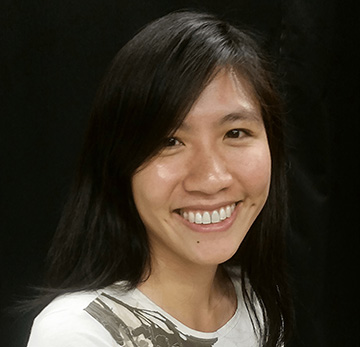
Judith Su
In this installment of Senior Member Insights, OPN talks with Judith Su, an assistant professor of optical sciences and biomedical engineering at the University of Arizona, USA, and a visiting associate in biology and biological engineering at California Institute of Technology (Caltech), USA. Su received her B.S. from Massachusetts Institute of Technology (MIT), USA, in mechanical engineering with a minor in literature, her M.S. from MIT in mechanical engineering, and her Ph.D. from Caltech in biochemistry and molecular biophysics. Her research currently focuses on ultra-sensitive biochemical sensing for fundamental science, environmental monitoring, and translational medicine.
What first interested you in pursuing science?
I was inspired to pursue science by my father, who is a mechanical engineering professor. I have always thought that he is the greatest person ever.
As just one example of how he inspired me: When I was in second grade, we were told to make a solar cooker by wrapping a paper plate in aluminum foil. My dad asked me what I was doing. When I explained to him the assignment, he showed me how to use a parabola to focus light. He showed me how to plot a parabolic function on paper and cut many of them out to make a large supporting structure, which we covered with aluminum foil.
The final solar cooker was immense. I could not get my arms around it. It was the only solar cooker in the class that worked, and I cooked hot dogs for the entire class the next day.
What aspect of your current work do you find the most interesting or exciting?
For me, it is discovering new knowledge, nurturing new talent, mentoring my research team, collaborating with other researchers and introducing the latest advances to students in my class.
What tips for successful networking do you have for early-career professionals?
Keep your former and current mentors posted about your work, participate in professional societies, give talks at conferences and use social media to stay connected. Above all, work on important problems that resonate with people and maintain your integrity and humanity such that people would trust and like to work with you.
What professional resources do you rely on to stay active and engaged with your field?
I maintain my memberships in Optica (formerly OSA), SPIE, ACS, and others to keep me up to date. I read journal articles and assign articles for my lab members for their weekly journal club presentations.
What skills do you think are most important for someone interested in a career like yours?
The ability to endure rejection and failure and use them to motivate and to improve your work.
Describe a major turning point in your career. Was there a specific action/accomplishment that got you there?
I was several years into my Ph.D. research on label-free single-molecule sensing using microtoroid optical resonators, when one day I had the opportunity to speak with Carver Mead and his associate. He suggested using frequency locking and told me to stick with this problem, as it was a beautiful problem that would carry me a long way. Following his suggestion, I was able to get things to work and invented FLOWER (frequency locked optical whispering evanescent resonator) (U.S. Patent Numbers 9,739,770 and 10,309,960). His encouraging words have accompanied me to this very day.
What is one piece of advice that you wish you were given as a student/early in your career?
When I was first starting out, I wish someone had told me to be more skeptical about the results I read.
What have you learned by being a mentor to others, and what have you learned from mentors who helped shepherd your career?
By being a mentor to others, I’ve learned that I cannot be a good mentor to everyone. I need to evaluate people entering my lab very quickly to give them a better chance to find the right mentor. From mentors who helped shepherd my career, I learned their kindness, unselfishness, wisdom, and the manner with which they conduct discussion.
What habits do you frequently rely on that help you to succeed?
I mark deadlines on my calendar and track my research expenditures to avoid mistakes.
If you weren’t in the sciences, what would be your dream career?
I have my dream career as a professor—but if I were not a professor, I think I would be a surgeon, as I think I work well with my hands. I have broad interests, so when I was younger, I also thought about law or politics. When I was 12, I attended a program at the University of Oxford for high school students and took a course on law. I have a sole-inventor patent for which I wrote the claims.
In addition, I serve as a member of the Board of Scientific Counselors of NIOSH (the U.S. National Institute for Occupational Safety and Health), and it is exciting to see suggestions you make become an action item. At a recent meeting, we discussed worker fatigue, and I suggested researching the effects of technology-enhanced on-site daycare to reduce fatigue and enhance productivity. There is just so much one could do to make our world a better place.
